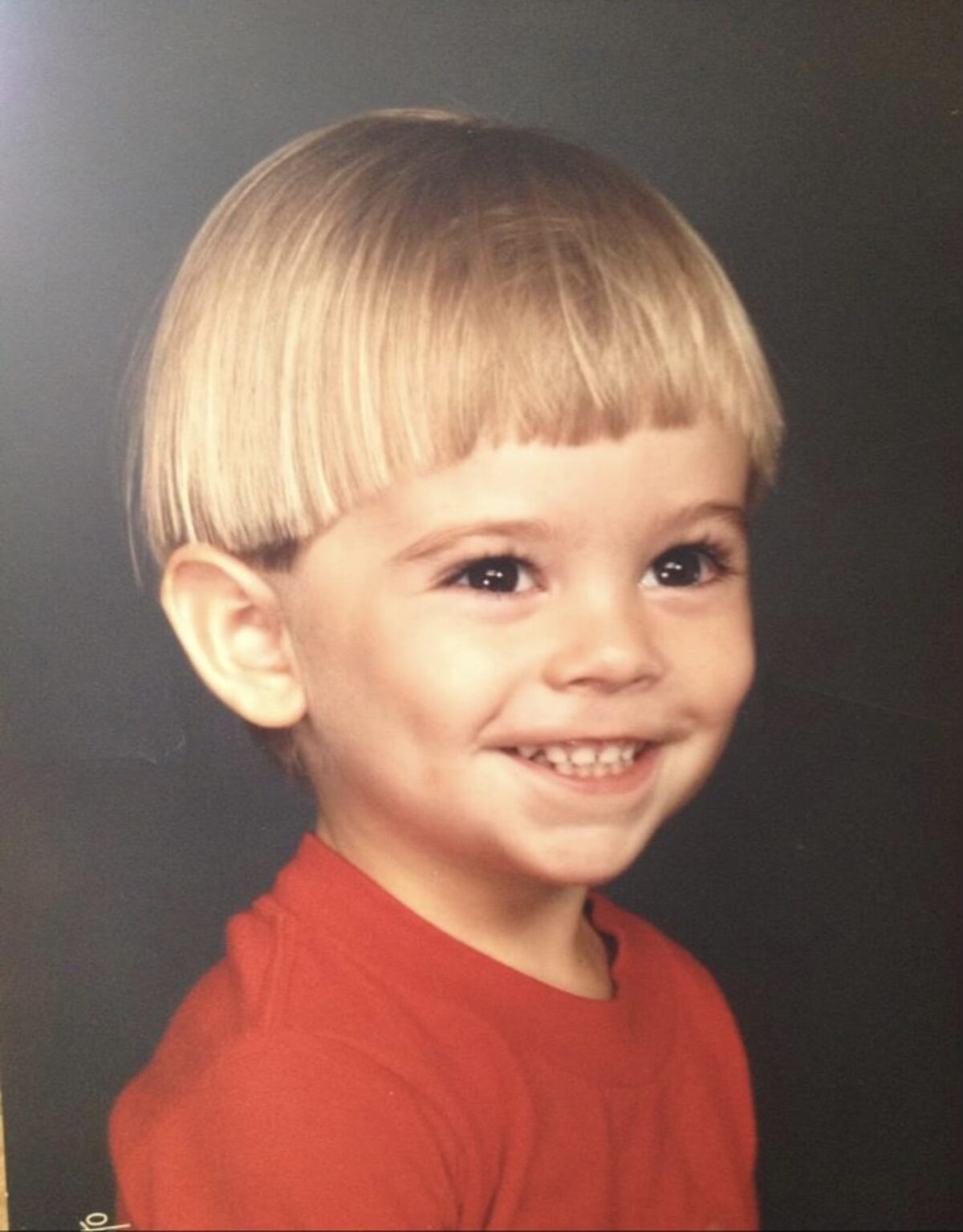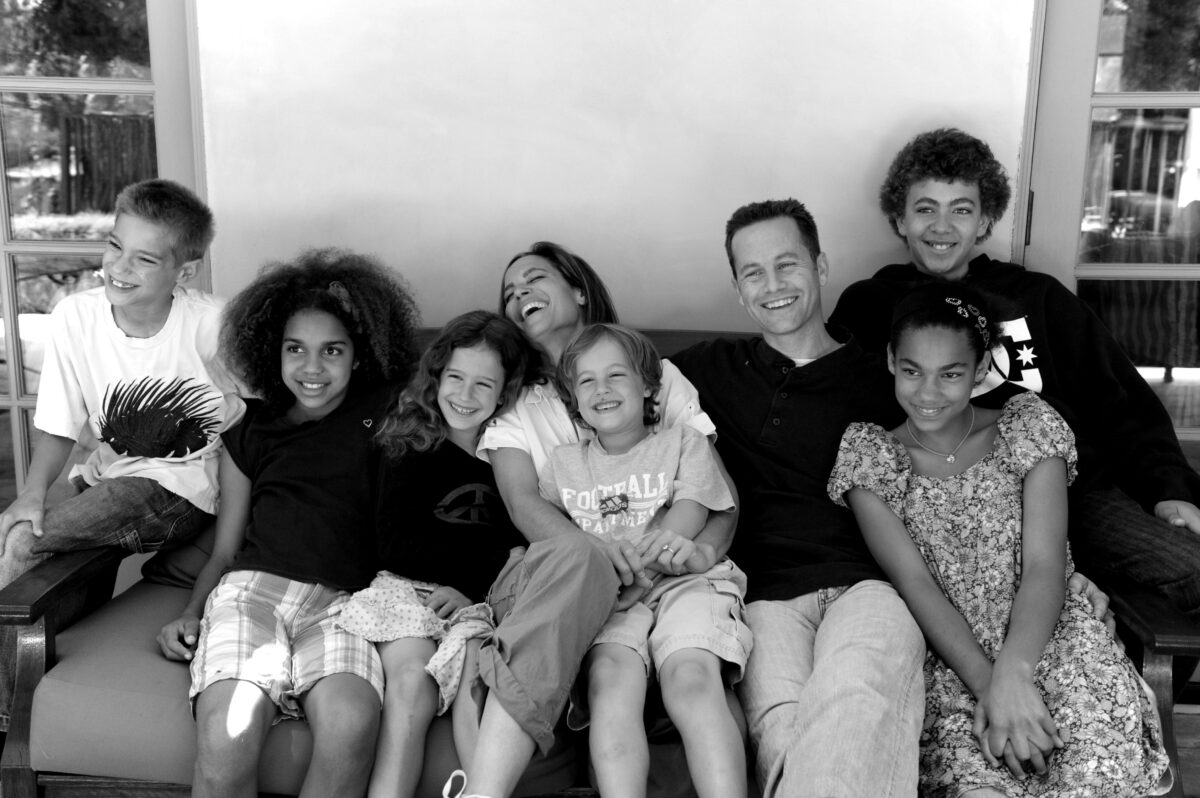February 14th is Congenital heart defect awareness day. Did you know a baby’s heart develops fully by week 9 of gestation? Congenital Heart Disease is a heart defect often formed in the womb, in which the structure of the way the baby’s heart grows is abnormal. This defect can affect many things, including blood flow. There are different forms of congenital heart defects that range from mild cases to more severe cases. An example of a mild case is where a hole might appear in the baby’s heart from birth, whereas a more severe case includes missing pieces from the baby’s heart. In more severe cases, the baby is not likely to live past a year old. Most cases of congenital heart defects have no cause.
CHD and the Pro-Life Movement
According to the American Heart Association, about 8 of every 1,000 babies have congenital heart defects. With the development of technology, the ability to detect congenital heart defects in the womb has increased. Unfortunately, many doctors may deem abortion as a remedy for the weakness, even though many babies born with this abnormality live full lives into adulthood. So, the pro-choice movement faces a moral question that even they struggle to answer by their standards. Does a baby deserve a chance at life, even with a life-threatening congenital heart defect?
Although congenital heart defects can now be detected from the womb, not all doctors catch cases before birth. Some symptoms of babies living with a congenital heart defect are blue-tinted nails or lips, trouble breathing, tiredness when feeding, and sleepiness. Still, some issues can go undetected into adulthood when the patient’s heart can respond extremely.
Van’s Story
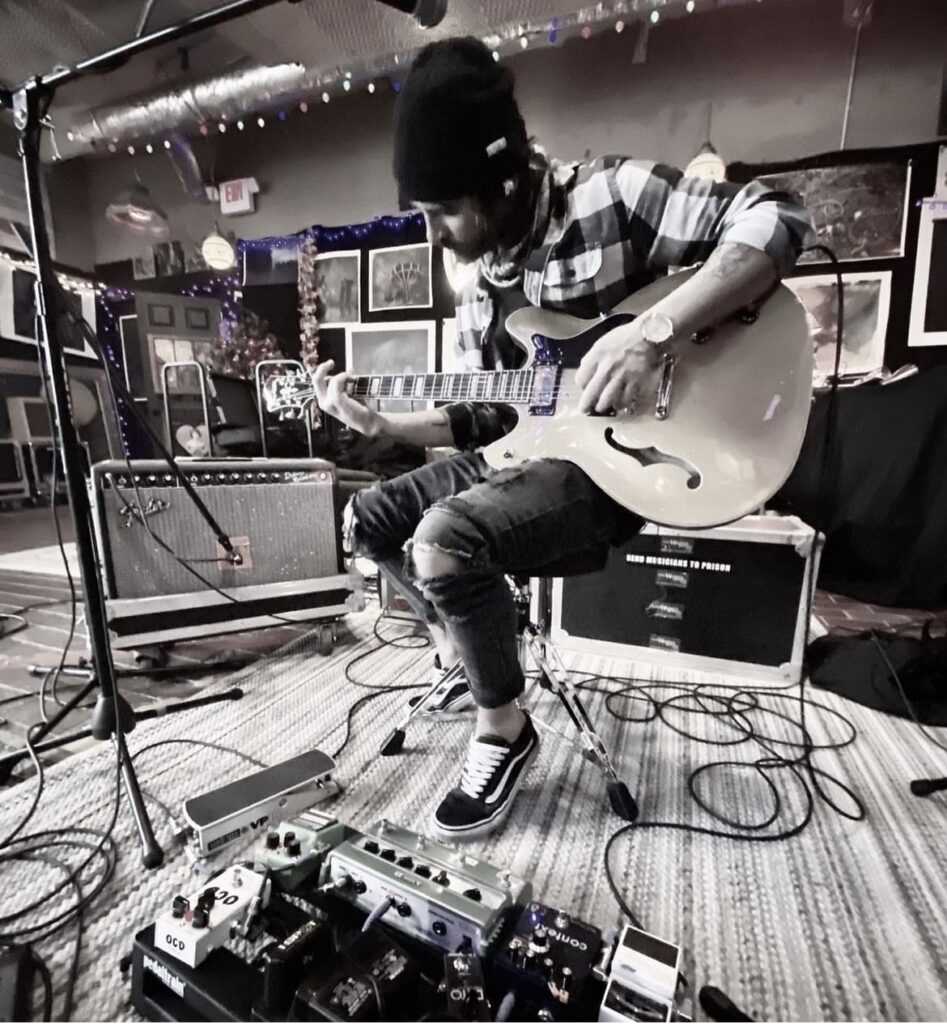
This was the case for Van Beasley. At 33 years old, Beasley lived a seemingly ordinary life, unaware he had two flaps in his heart instead of three (or a bicuspid aortic valve). Van was born in 1985, just years before technology could better detect CHD through ultrasounds. He was with friends in Nashville, Tennessee, recording a song ironically titled “Heartbeat.” In the middle of recording his song about how if you have a heartbeat, you have a purpose, his aortic valve burst. Van recalled the experience saying, “It felt like a tractor-trailer was sitting on my chest.”
Van’s friends suggested calling an ambulance, but instead, he went to his local grocery store, Kroger, to check his vitals. Doctors later told him he only lived because his flesh had created a funnel. While Van was bleeding out, the blood flowed back into his heart. This medical marvel is the first in Van’s life’s list of miracles. The next day, Van went to the doctor, and they initially thought he had an allergic reaction. The doctor asked him to get a CT scan just in case. When Van went in for his CT scan, the results were the last thing anyone expected.
“I looked at the nurses in the room, and their eyes were as big as basketballs,” Van said.
Hope in the Real Physician
With quivering voices, the nurses told Van not to move, cough or talk. They explained that he had a seven-centimeter aneurism and they needed to do open heart surgery immediately. In an ambulance, Van was rushed to the hospital with his family following behind. He had to choose whether he wanted a biological or mechanical valve placed in his heart. Just days before, Van was making music with his friends, and now he was faced with the impossible. The surgeon came in to tell him, “You need to say goodbye to your family; you’re probably not going to make it.” Despite the doctor’s prediction, Van woke up from his 7-hour surgery in immense pain but alive. Two and a half weeks later, Van passed out at home and was rushed back to the hospital for another open heart surgery.
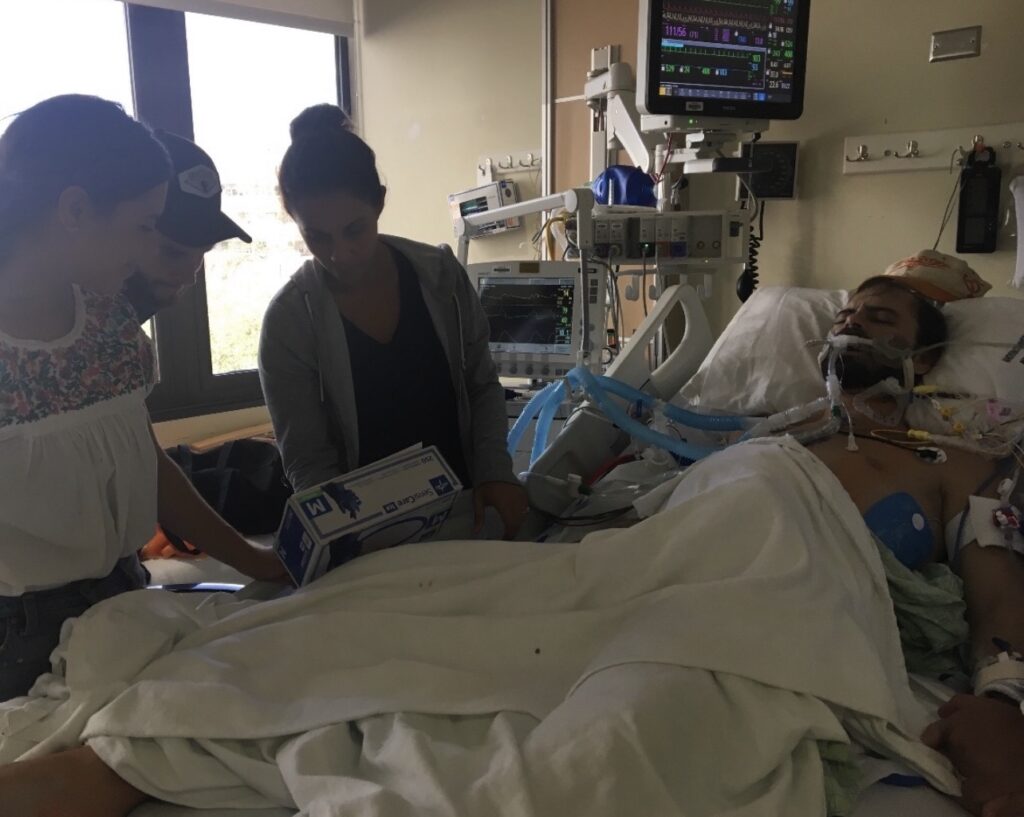
When the surgeon gave Van four options, Van asked which he should do. The surgeon replied that none of them would work, and again, he heard he wouldn’t make it. Nine hours into the surgery, Van was bleeding out on the table, surrounded by doctors who couldn’t find the leak in his heart. “I was almost dead on the table,” Van recalls, “The doctors told me there was a 100% chance I wouldn’t make it. I don’t know where they come up with these numbers.” Although Van was not conscious during the surgery, coincidentally, he had a friend who scrubbed in for work that day and witnessed the following events. The doctors were ready to give up and pronounce Van Beasley dead when a nurse began praying out loud. At that exact moment, the doctors found the leak.
Gold in the Suffering
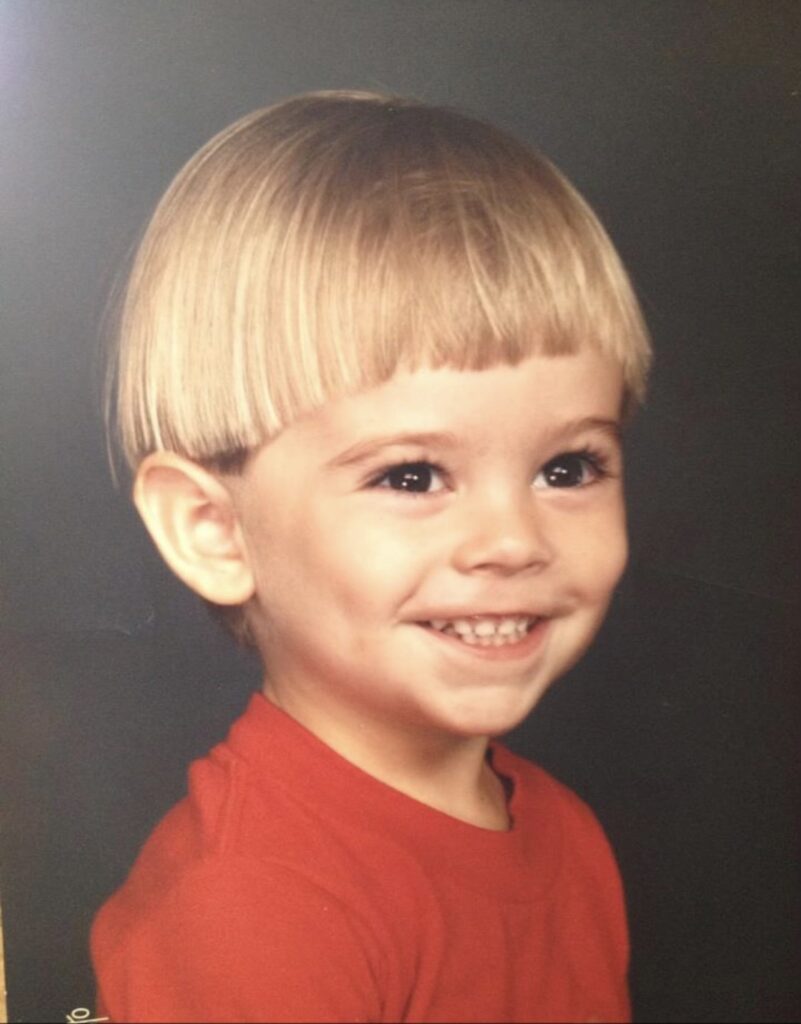
Doctors give bad reports every day, but Van Beasley chose to put his trust in the REAL physician, Jesus. Van is passionate about the problem of doctors instilling fear in many of their patients. He described his experience of the fear running rampant in hospitals.
“I can understand a pregnant girl might be overcome with fear and think abortion is better for the baby. But, if I could do this life again, I would do it again. I always say there’s gold in the suffering,” Van said.
When parents hear the diagnosis of a child with congenital heart defects, the one diagnosing has a massive role to play. Abortion-vulnerable women might change their minds depending on something as significant as a recommendation to terminate or the body language of the doctors and nurses in the room. Families who choose to proceed with pregnancy when the risk for death is high can often feel shamed or questioned by their medical advisors or peers. Why bring a child into the world who might only live for a few minutes? On the contrary, why take the life of someone who might fight hard enough to live a healthy life, like 97% of those diagnosed with congenital heart defects? Allowing a child the chance at life, no matter how short it might be, is the heart of the pro-life mission.
A heartbeat is a sign of life…
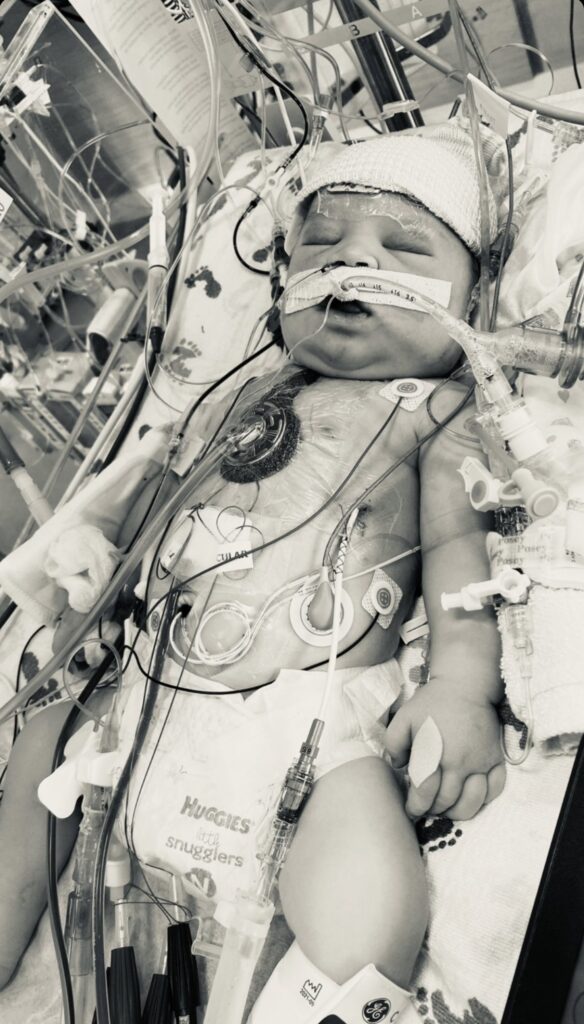
Van’s story proves the ability to persevere and live a good life despite a diagnosis. For Van, this subject runs deeper than just his life, as his newborn nephew had open heart surgery the same week that he did. Van’s sister knew very early in her pregnancy that her son had transposition of the great arteries (DTGA) and coarctation of the aorta. She was told that her son would have open-heart surgery as soon as she gave birth. Despite this diagnosis, Van’s sister chose life for her baby boy Amos. He lovingly described his joy at this,
“I look at Amos now; he is a healthy baby. He has a beautiful zipper scar down his chest and will live a healthy life. If she had caved into the fear the doctors instilled in her, she would never have had this beautiful baby. Her two other sons wouldn’t have a little brother.”

Van’s trials in life with his heart defect have given him a passion for the value of life, no matter how hard. When asked about abortion, he responded, “You are taking away from an unbelievable testimony and what God wants to do. He loves doing the impossible. There’s nothing impossible for Him.” We have no right to determine the value of someone’s life, no matter how small or challenging. Van and his nephew Amos are only two stories of what life with congenital heart defects can be. The subject of the song Van was writing when his life changed forever is the center of the pro-life message. If you have a heartbeat, you have a purpose.
Matthew 19:26
Jesus looked at them and said, “With man, this is impossible, but with God, all things are possible.”


